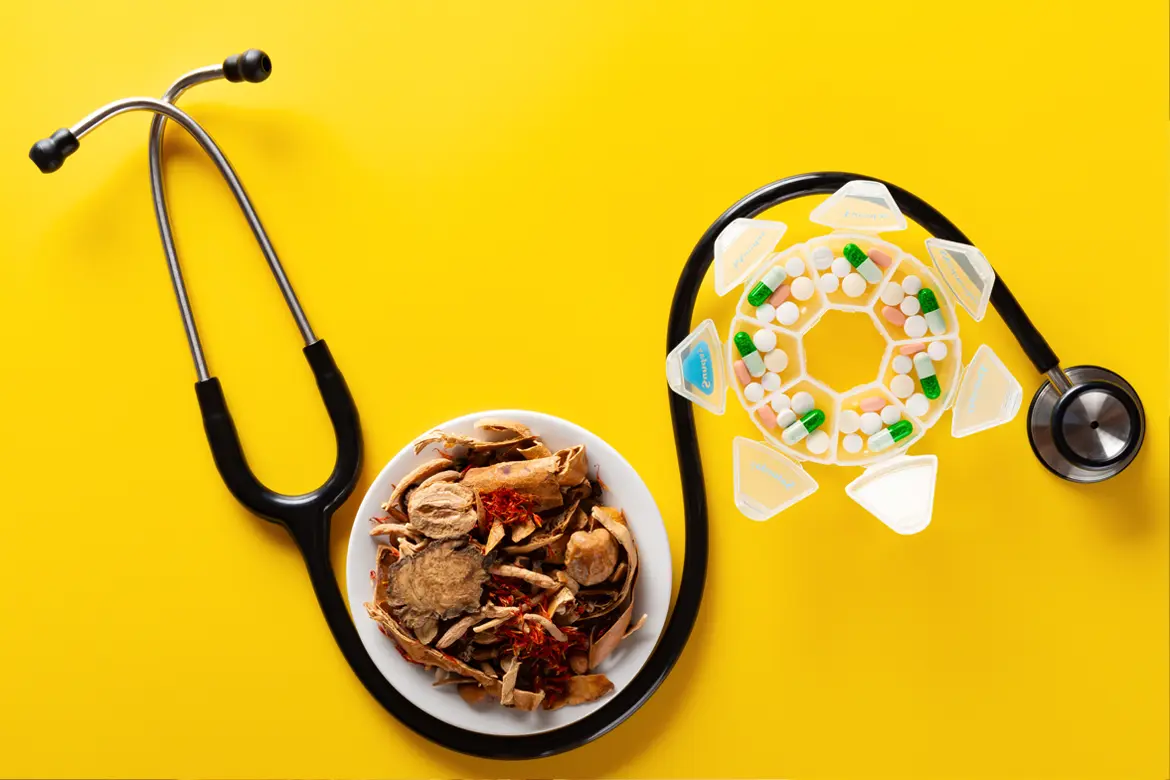Lim Wee Peng
Family Physician


Family Physician
Hypertension, or high blood pressure, is one of the leading risk factors for cardiovascular disease and a major public health concern in Singapore.
Often called the ‘silent killer’, hypertension usually shows no symptoms in its early stages. Yet over time, it can quietly damage your organs, leading to serious complications such as stroke, heart failure, and kidney disease.
The good news is? Hypertension doesn’t have to be something you simply “live with”.
At Parkway Shenton, we believe Western medicine and Traditional Chinese Medicine (TCM) can complement each other when it comes to managing hypertension. With early detection and a balanced, integrative approach, you can better control your blood pressure and support long-term heart health.
According to Singapore’s Ministry of Health (MOH) guidelines, hypertension is diagnosed when systolic (top) readings exceed 130 mmHg and/or diastolic (bottom) readings exceed 85 mmHg.
| Category | Systolic BP (mmHg) | Diastolic BP (mmHg) |
|---|---|---|
| High-Normal BP | 130 – 139 | 85 – 89 |
| Grade 1 Hypertension | 140 – 159 | 90 – 99 |
| Grade 2 Hypertension and above | ≥160 | ≥100 |
Note: Blood pressure targets may vary depending on age, risk factors, and medical history. Please consult your healthcare provider for personalised advice.
Left untreated, hypertension significantly increases the risk of heart attack, stroke, kidney damage, and even vision loss. So, how can we prevent this?
In Traditional Chinese Medicine (TCM), hypertension is not viewed as a standalone condition but as a reflection of imbalances in the body’s qi (vital energy), yin-yang, and organ systems such as the liver, kidney, and spleen. TCM focuses on identifying underlying patterns for hypertension and tailoring treatment accordingly.
| TCM Patterns | Common Symptoms |
|---|---|
| Hyperactivity of Liver Yang (肝阳上亢证) Commonly linked to stress and emotional tension. |
- Dizziness - Headaches - Facial flushing - Irritability |
| Accumulation of Phlegm & Dampness (痰湿中阻证) Associated with poor digestion, sedentary habits, or a greasy diet. |
- Heavy-headedness - Mental fog - Dull pressure in the head |
| Obstruction by Blood Stasis (瘀血内阻证) Results from poor circulation or long-term qi stagnation. |
- Chest pain - Palpitations - Stubborn headaches - Dark and purplish tongue |
| Deficiency of Kidney Yin (肾阴亏虚证) Common in older adults or those with chronic fatigue, overwork, or insufficient rest. |
- Forgetfulness - Sore/weak lower back and knees - Tinnitus - Dry eyes, blurred vision |
Managing hypertension isn’t just about lowering blood pressure; it’s about restoring balance and supporting overall health. By combining the strengths of Western medicine and TCM, you can achieve both symptom relief and long-term wellness.
Lifestyle modifications: Adopt a low-sodium diet (e.g. the DASH diet – Dietary Approaches to Stop Hypertension), exercise regularly, and manage weight and stress.
Pharmacotherapy: Antihypertensive medications such as ACE inhibitors, Angiotensin II receptor blockers (ARBs), calcium-channel blockers, beta-blockers, or thiazide diuretics help regulate blood pressure.
Routine monitoring: Regular doctor visits and self-tracking at home help monitor your progress and ensure treatment effectiveness.
Acupuncture: Helps calm the nervous system, regulate qi, and improve circulation. Common acupoints include Taichong 太冲 (LR3), Quchi 曲池 (LI11), Zusanli 足三里 (ST36) and Fengchi 风池 (GB20).
Herbal therapy: Herbal formulas are prescribed based on individual patterns. Hence, two individuals with hypertension may receive two different herbal formulas depending on their unique imbalances. In TCM, this is known as 同病异治 (same illness, differentiated treatment).
Holistic care: TCM may also recommend dietary adjustments, gentle exercises (like tai chi), and lifestyle guidance tailored to each person’s needs.
Western medicine offers precise, fast-acting interventions to lower blood pressure and reduce the risk of acute cardiovascular events, while TCM focuses on restoring internal harmony, addressing root causes and enhancing overall health. Together, by integrating these two approaches, you benefit from a holistic plan that not only controls blood pressure but also promotes long-term vitality and well-being.
Taking charge of your blood pressure also means making small but impactful changes to your lifestyle:
Manage stress and emotions: Try calming exercises such as deep breathing, tai chi, or meditation to soothe the liver and relax your mind and body.
Eat a light, balanced diet: Avoid greasy, salty, and spicy foods. Choose more vegetables, whole grains, and potassium-rich foods like celery and bitter gourd.
Stay active: Engage in gentle exercises, such as brisk walking or stretching, to improve circulation and regulate blood pressure.
Maintain a balanced routine: Ensure adequate sleep (ideally before 11pm), regular meals, and work-life balance to support smooth qi flow and nourish liver and kidney yin.
If you’re looking for a more holistic approach to hypertension management, we’re here to help. At Parkway Shenton, our hypertension co-management programme with Eu Yan Sang combines the diagnostic accuracy and medical expertise of our GPs with the holistic insights of Eu Yan Sang’s licensed TCM practitioners.
Through our collaborative care model, we can provide a safe, effective, and personalised treatment plan to support long-term blood pressure control:
Joint diagnosis and collaborative care planning
Reduced risk of drug-herb interactions
Personalised strategies that address stress, metabolic imbalances, and lifestyle factors
Potential to reduce medication dependency and improve overall quality of life
This article was reviewed by Dr Lim Wee Peng, Family Physician at Parkway Shenton Medical Clinic, Guoco Tower and Physician Chan Jing Wen, TCM Physician at Eu Yan Sang TCM Clinic @ Guoco Tower
Ready to take the first step towards better health? Book a consultation with us at Parkway Shenton, Guoco Tower and discover how integrative care can support your hypertension safely and effectively.